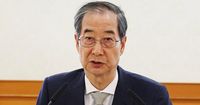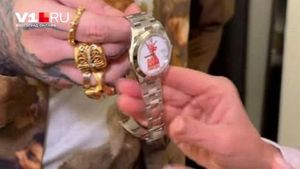On April 4, 2025, the Constitutional Court of South Korea made a historic ruling to impeach President Yoon Suk-yeol due to his controversial declaration of martial law. This decision marks a significant moment in South Korean politics, calling for immediate action to restore democratic governance.
The court's verdict, delivered by Chief Justice Moon Hyung-bae during a live broadcast, stated that President Yoon's imposition of martial law on December 3, 2024, was unlawful and did not comply with legal standards. The ruling effectively strips Yoon of his presidential powers and mandates that South Korea hold new elections within 60 days to elect his successor.
"The negative impacts on constitutional order and the consequences of the defendant's illegal actions are severe, making the interest in upholding the Constitution by dismissing the defendant far greater than the loss to the nation from dismissing the president," Justice Moon declared.
The court's decision follows a tumultuous period in which Yoon was impeached by the opposition-controlled National Assembly in December 2024. The National Assembly accused him of violating the constitution by deploying military forces to the National Assembly to prevent lawmakers from voting to annul his martial law decree. This unprecedented action led to his arrest in January 2025 on charges of insurrection, marking the first time a sitting South Korean president has been detained.
Yoon was released from custody earlier in March after a judge overturned his arrest warrant, but he continued to face serious legal challenges. The Constitutional Court had initially planned to announce its ruling in mid-March but delayed the decision, intensifying political tensions across the country.
Security was heightened around the Constitutional Court during the ruling, with approximately 7,000 police officers deployed to maintain order as crowds gathered outside to show their support or opposition to Yoon. Following the court's announcement, celebrations erupted among those who opposed Yoon, while his supporters expressed deep sorrow.
In the wake of the ruling, Acting President Han Duck-soo emphasized the need for stability and security in the country. He stated that the upcoming presidential election is crucial for restoring public trust following the political turmoil caused by Yoon's actions. Han convened an emergency meeting of the National Security Council to address potential security threats and ensure a smooth electoral process.
"The next presidential election must take place smoothly," Han said, highlighting the significance of unifying the nation after the recent unrest. He also pledged to maintain close cooperation with international partners, particularly the United States, to navigate ongoing diplomatic and economic challenges.
Former President Moon Jae-in commented on the ruling, calling it a testament to the strength of South Korean democracy. He expressed hope that the instability stemming from Yoon's martial law would soon subside, allowing the nation to recover.
As South Korea prepares for a new election, political analysts are closely watching potential candidates. Recent polls indicate that Lee Jae-myung, the leader of the opposition Democratic Party, is favored among voters, despite facing his own legal issues. Other potential candidates include Han Dong-hoon, former leader of Yoon's People Power Party, and Kim Moon-soo, former Minister of Labor.
Public sentiment regarding Yoon's impeachment appears to be largely supportive, with a Gallup Korea poll showing that 60% of respondents believed he should be removed from office. However, this figure has decreased since the initial outrage following the martial law declaration.
In an emotional statement released through his attorney shortly after the court's decision, Yoon expressed regret for not meeting the expectations of the South Korean people. He wished for the country's prosperity and stability moving forward.
As the nation grapples with the implications of this unprecedented ruling, the road ahead remains uncertain. The upcoming presidential election is not just a matter of political leadership; it will also serve as a critical juncture for South Korea's democratic integrity and public trust.
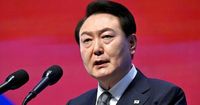
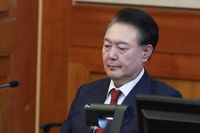
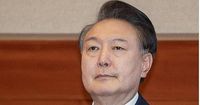
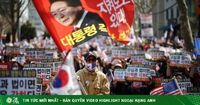
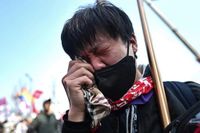
![[Video] Tổng thống Hàn Quốc Yoon Suk-yeol bị phế truất](https://thumbor.evrimagaci.org/9a7YbGpJTKHQCGEk3-L-u2e8YmM=/200x0/tpg%2Fsources%2F513f4706-6004-497b-bd23-0abf4de2dbeb.jpeg)
